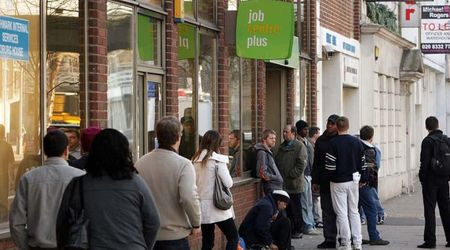America Is Shifting From 'Tipping Culture' to 'Tip Fatigue'

The growing "mandatory tipping culture" makes many Americans unhappy and troubled. Traditionally, there was no concept of tipping as it was considered a token of appreciation which did not require any custom percentage or amount. But nowadays, many restaurants, salons, and other service outlets are asking for tips for services, and if denied, they add service charges automatically to bills. With tipping culture becoming common, it has led to the rise of a popular phenomenon called "tip fatigue". It is a situation that describes how irritated and tired Americans are of the tipping culture added to almost every service.
A poll shows consumers are fed up having to tip service staff in places where the practice didn't exist before. https://t.co/0tuXQ678CA
— Inc. (@Inc) April 1, 2024
Latest surveys reveal that people are frustrated that they are being forced to tip at places that didn't exist before the pandemic. Restaurant owners are making the tips almost mandatory by saying that it would help the workers earn more which is even more concerning. Almost 60% of Americans surveyed say that it's time for businesses to pay their workers better so customers don't have to shell out extra money. During the tough times of the pandemic, customers demonstrated their human side by giving more tips to workers out of generosity. This gave rise to what we now know as a "tipping culture" where extra money on every service is expected from every customer whether they can afford it or not.
CNBC shared in its reports that Americans are now getting versed with the concept of tip fatigue thereby falling into "guilt tipping". Many customers are irked with paying tips for every small service and have named the phenomenon "tip creep". The survey found that almost 80% of Americans feel that automated charges must be forbidden and that tip jars and payment screens must not be forced on customers. As per the survey conducted by WalletHub, 74% of people expressed that they strongly feel that the tipping culture has gotten out of control, and 57% of them raised concerns regarding why businesses are replacing employee salaries with tips. Additionally, customers are now prompted for tips on self-checkout services where there is no human interaction leaving Americans frustrated.
Recent reports show shoppers are experiencing “tip fatigue” and starting to tip less — and resent “guilt tipping” even more.https://t.co/PwkiscbGpV
— NBC New York (@NBCNewYork) March 31, 2024
Post-pandemic, some people felt good giving tips to the workers but are now frustrated with the whole advance and mandatory tipping. They don't want restaurants to tell them how much to tip and feel that appreciation or gratitude for service can never be forced.
Tim Self, an assistant professor of hospitality at Austin Peay State University in Clarksville, Tennessee, shared with CNBC, "Customers are being asked to tip at the more traditional service encounters and also app-based services, ride-share, and delivery apps. This gives the perception that tipping is everywhere, which does seem the case. Ultimately, it comes down to the consumer making that choice, and I think more people will get comfortable saying 'no.' That's where I think a tip jar makes more sense."






















